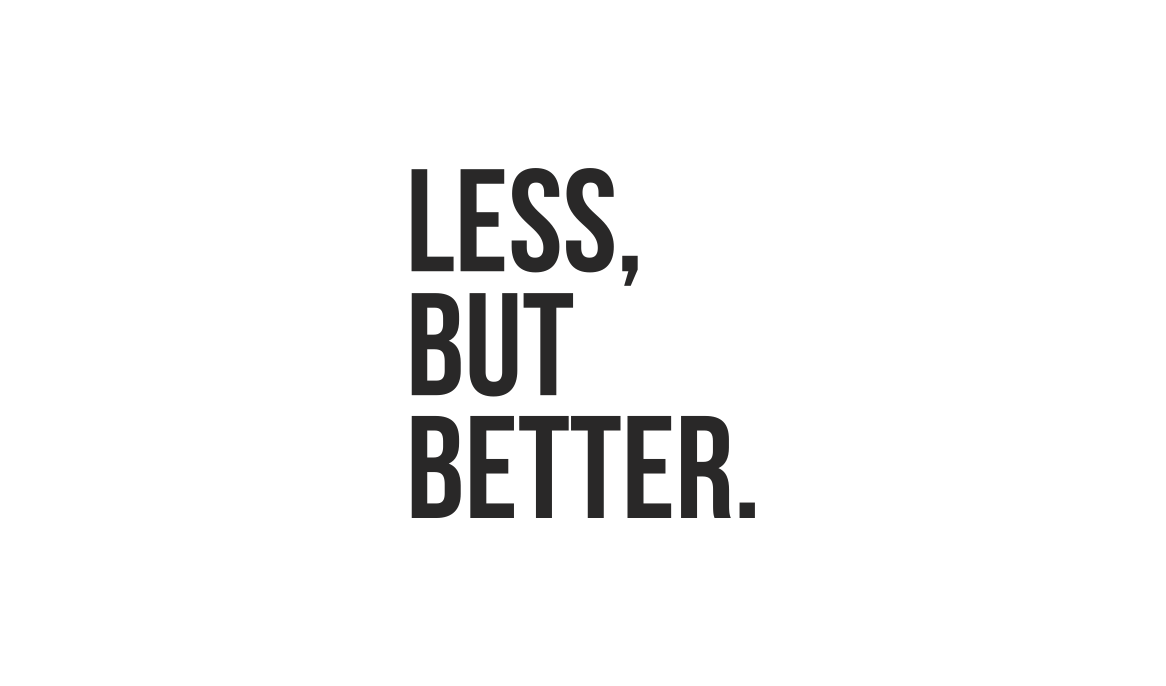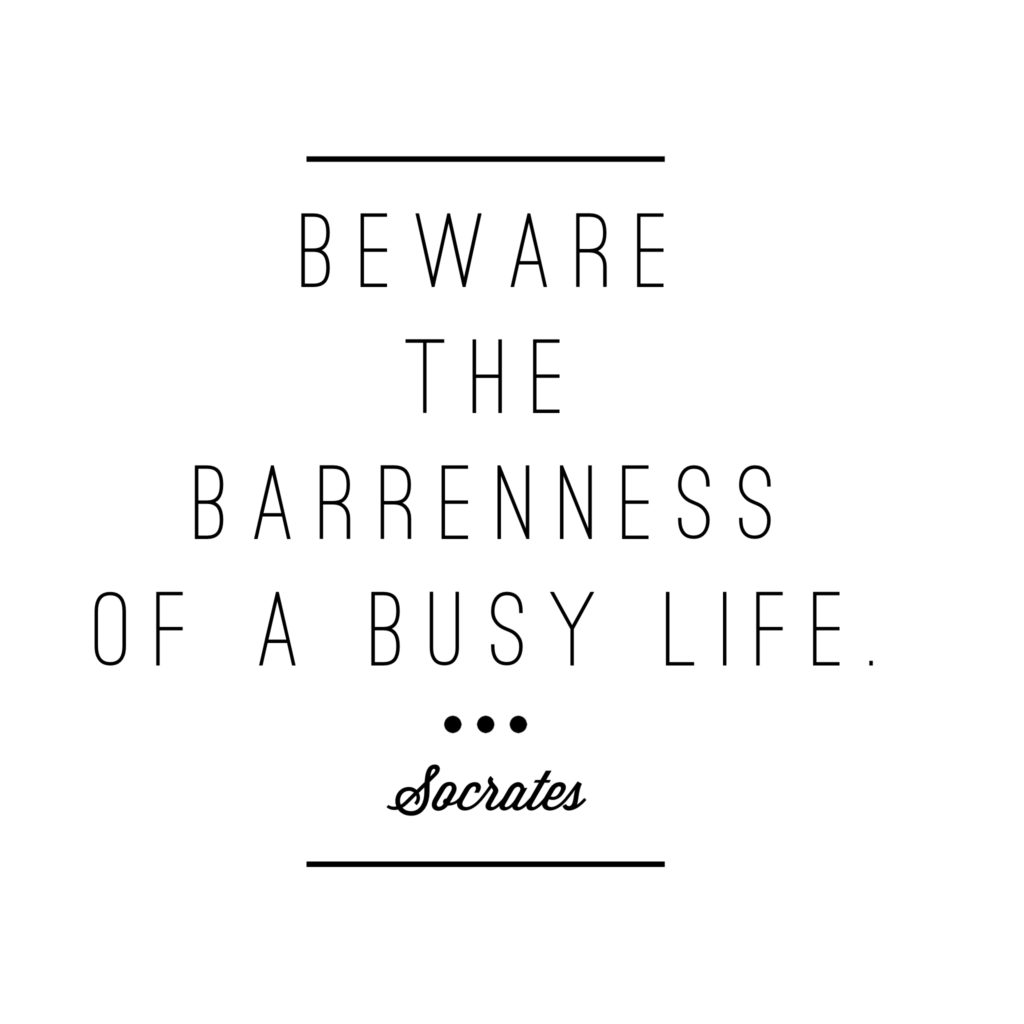
I’ve been reading a book called “Essentialism: The Disciplined Pursuit of Less” by Greg McKeown. I ordered it on the recommendation of a friend without even bothering to read the blurb and assumed it was going to be about my wardrobe. (In theory, I’m very interested in the minimalist movement but I’m crap at putting it into practice). While this book does use wardrobe analogies quite frequently, I was surprised to find it’s actually a book about how to simplify your work (and life) and I’ve absolutely loved reading it.
My husband also loved reading it so if you count my coaching friend that’s three from three who would recommend it, so I thought it was worth sharing some highlights. (And if you’re time poor, I’ve dot pointed the highlights at the bottom of this post!)
The gist of it, as applied to your working life, is that when we’re good at doing things, we get asked to do more things (or we volunteer to do more things because we know we can do it better than anyone else) or we get offered business/career opportunities. However the more we stretch our resources to do more things, the less energy and focus and time we have available to devote to the things we truly love to do, that we are exceptional at doing, and that give us the highest satisfaction/return for our efforts.
So, in order to make our highest contribution, we need to say no to all the non-essentials.
Which all sounds utterly lovely and makes perfect sense but as you can imagine, it’s a whole lot easier said than done. Sometimes opportunities present themselves and we get hooked up in thinking we should take them because they’re good opportunities, or we don’t like to let people down and we’re not very good at saying no.
Ultimately the price we pay for this ‘non-essentialism’ though is that our resources are stretched, our energy is scattered, our focus is unclear and our work is not the best it could be, which means those opportunities quickly stop appearing. Not only that, but you’ve sacrificed the opportunity to continue targeting and focusing your efforts on making your highest contribution.
To go back to the wardrobe analogy, McKeown suggests that if you decide to clean out your wardrobe using the criteria of ‘Is there a chance I might want to wear this one day in the future?’, we end up holding onto a lot of stuff we don’t want or need. The question to ask instead is “Do I love this? Would I buy it right now if I didn’t already own it?” and that this gives us a much tougher selection process but the result is so worth it when we have a clean clear space, a select few pieces we highly value, and we are no longer overwhelmed by too many choices when deciding what to wear.
What I love about this idea is that it can be applied to any area of your life. Think about your personal commitments, social obligations, and even (dare I say it?) your friends.
When you consider where you spend your time, money, physical and mental energy, how much of the stuff of your life truly nourishes you and fulfils you and how much is there out of obligation, fear, or just because it’s always been there and you’ve never thought to get rid of it?
Below I’ve listed a few highlights from the book if you’re interested in applying a bit more essentialism to your own life:
Discern the trivial many from the vital few
Non-essentialists view all opportunities as equal and ask “How can I make it all work?”
Essentialists ask “What do I want to go big on?” using the criteria: “What do I feel deeply inspired by?” and “What am I particularly talented at?” and “What meets a significant need in the world?”
Starting from zero
In zero based budgeting, every expense has to justify itself at the start of the financial year (rather than just being included because it was there last year).
Using this analogy, if you had the opportunity to build your life from scratch today, what things, people and projects would you add right now if it didn’t already exist?
Learn to say no without apology
I don’t think this one needs any more explanation. Saying no feels awkward and impolite but it’s a vital skill if you don’t want your time and energy drained by non-essentials.
And remember, if it isn’t a clear yes, it’s a clear no.
Recognise sunk-cost bias and know when to bail out
We overvalue things we already own (see your wardrobe for evidence).
We also feel compelled to continue investing in projects, people and things we have already heavily invested in. It’s why we keep waiting on hold even after hours of our time have been wasted – we want to hang in there until we see a return.
We need to get better at admitting mistakes and changing course when we realise something is no longer working for us so that we don’t keep throwing good money (time, energy, effort) after bad.
Live with intent
This applies to more than just your job. It’s a bit like having a clear mission statement for your life.
Your essential intent will be informed by your values, create a sense of purpose and help chart your life’s course.
It is making one decision which eliminates a thousand others and it takes courage because to decide literally means to cut off all other options. This means making tough trade-offs and getting over the fear of missing out, but only with this kind of clarity and purpose can we live truly fulfilling and inspired lives and achieve our highest point of contribution.
SO… if you were to be more of an ‘essentialist’, what might you declutter from your life? It’s definitely worth thinking about!







